
Moshi: Gateway to Kilimanjaro's Wonders
Moshi, nestled at the foot of Mount Kilimanjaro, offers a unique blend of natural beauty and cultural richness. This charming town is the perfect base for adventurers aiming to conquer Africa’s highest peak or explore its lush surroundings. The town itself is a vibrant hub, filled with bustling markets, cozy cafes, and friendly locals. The streets of Moshi are lined with colorful shops selling local crafts, fresh produce, and aromatic spices, giving visitors a true taste of Tanzanian life. The town's lively atmosphere makes it an enjoyable place to stroll around and discover hidden gems. Moshi is also a gateway to several attractions beyond Kilimanjaro. Nearby coffee plantations offer tours where you can learn about the coffee-making process from bean to cup. The waterfalls and hot springs in the vicinity provide refreshing day trips for those looking to unwind and connect with nature. With its warm climate and welcoming people, Moshi is a delightful destination for all types of travelers.
Local tips in Moshi
- Visit Moshi during the dry season from June to October for the best mountain climbing conditions.
- Experience local culture by attending a traditional Chagga dance performance.
- Don't miss the chance to visit the local markets early in the morning for the freshest produce and unique souvenirs.
- Stay hydrated and wear sunscreen, as the equatorial sun can be intense.
- Hire a local guide for trekking to get the most informative and safe experience.
Moshi: Gateway to Kilimanjaro's Wonders
Moshi, nestled at the foot of Mount Kilimanjaro, offers a unique blend of natural beauty and cultural richness. This charming town is the perfect base for adventurers aiming to conquer Africa’s highest peak or explore its lush surroundings. The town itself is a vibrant hub, filled with bustling markets, cozy cafes, and friendly locals. The streets of Moshi are lined with colorful shops selling local crafts, fresh produce, and aromatic spices, giving visitors a true taste of Tanzanian life. The town's lively atmosphere makes it an enjoyable place to stroll around and discover hidden gems. Moshi is also a gateway to several attractions beyond Kilimanjaro. Nearby coffee plantations offer tours where you can learn about the coffee-making process from bean to cup. The waterfalls and hot springs in the vicinity provide refreshing day trips for those looking to unwind and connect with nature. With its warm climate and welcoming people, Moshi is a delightful destination for all types of travelers.
When is the best time to go to Moshi?
Iconic landmarks you can’t miss
Mbuyuni Market
Explore the vibrant Mbuyuni Market, a fresh food haven that showcases the rich flavors and lively culture of Tanzania in every vibrant stall.
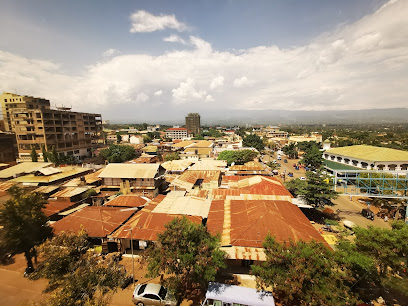
AFRICA NATURAL TOURS L.T.D
Explore the heart of Africa with Africa Natural Tours L.T.D, offering unforgettable adventures and authentic experiences in Tanzania's stunning landscapes.
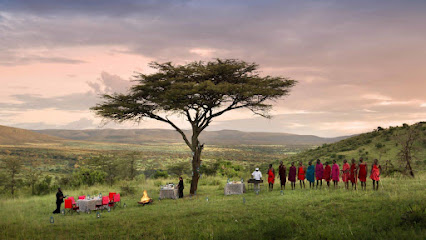
Kilimanjaro Wonders Hotel
Discover the charm and elegance of Kilimanjaro Wonders Hotel, your ideal base for exploring Tanzania's majestic landscapes and vibrant culture.
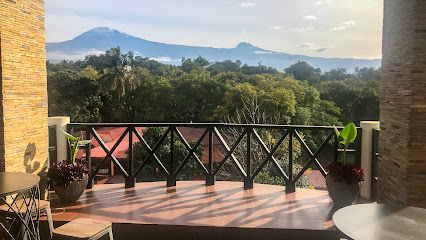
Memorial Market
Explore the vibrant Memorial Market in Tanzania for a taste of local culture, delicious food, and unique souvenirs in a lively atmosphere.
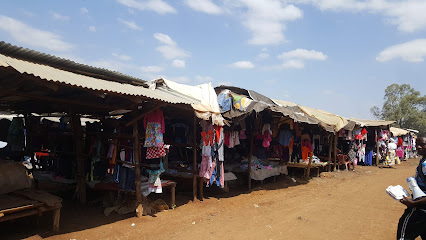
Kili Home Garden Bar and Restaurant
Discover the flavors of Tanzania at Kili Home Garden Bar and Restaurant, where local ingredients meet a charming garden ambiance.
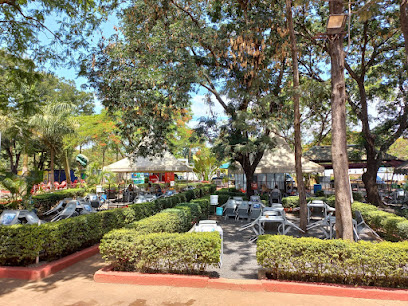
Maembe Garden Restaurant
Experience authentic Tanzanian cuisine in a serene atmosphere at Maembe Garden Restaurant, where local flavors and a cozy lounge vibe meet.
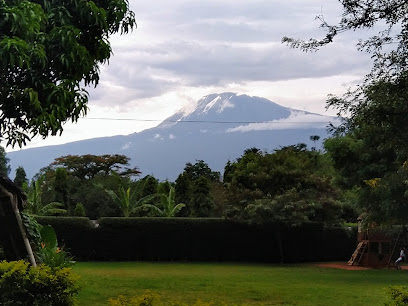
Lutheran Uhuru Hostel
Discover the heart of Majengo at Lutheran Uhuru Hostel, where comfort meets culture in a vibrant community atmosphere.

Parkview Inn
Experience the heart of the city at Parkview Inn, your comfortable base for exploring vibrant local culture and attractions.
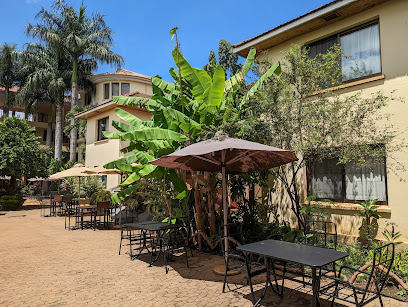
Kuonana Africa Restaurant
Experience the authentic flavors of Africa at Kuonana Africa Restaurant, where every dish tells a story of tradition and taste.
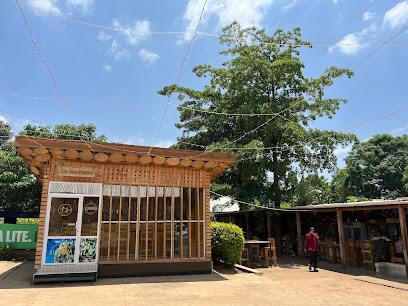
KILIMANJARO WHITE HOUSE HOTEL - Best 4-Star hotel with Mount Kilimanjaro view| Luxury| Budget hotels in Moshi Tanzania
Experience the breathtaking views of Mount Kilimanjaro at the Kilimanjaro White House Hotel, offering diverse accommodations for every traveler in Moshi, Tanzania.
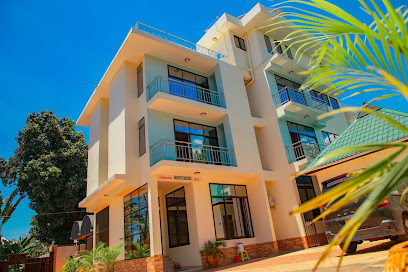
Materuni Waterfall
Discover the breathtaking beauty of Materuni Waterfall, a serene escape into Tanzania's lush landscapes, perfect for adventure and relaxation.
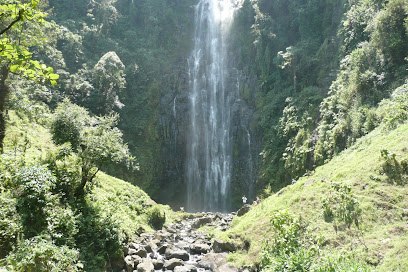
Alpine Chat Adventure - Tanzania Safari & Mount Kilimanjaro
Discover the breathtaking beauty of Tanzania with Alpine Chat Adventure - your gateway to unforgettable safaris and Mount Kilimanjaro trekking experiences.
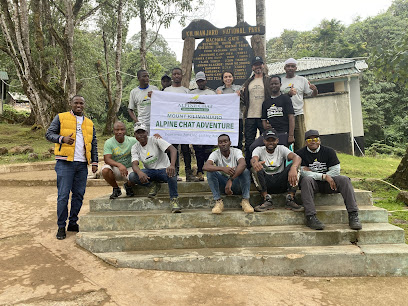
WINNERS EXPEDITIONS- Best Tour Operator in Tanzania| Kilimanjaro Climbing Company in Arusha & Moshi| Serengeti Migration
Discover the wonders of Tanzania with Winners Expeditions, your trusted partner for Kilimanjaro climbs and Serengeti migrations.
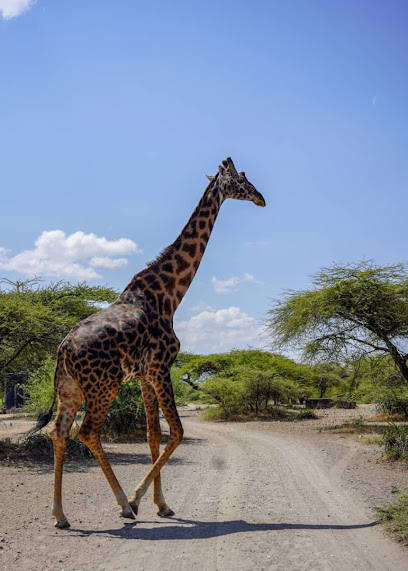
JAYNEVY TOURS CO L.T.D Best Tanzania Tours & Safari Company in Serengeti|Kilimanjaro Climbing Operators.
Discover Tanzania's breathtaking landscapes and vibrant wildlife with Jaynevy Tours, your trusted partner for unforgettable safari and adventure experiences.
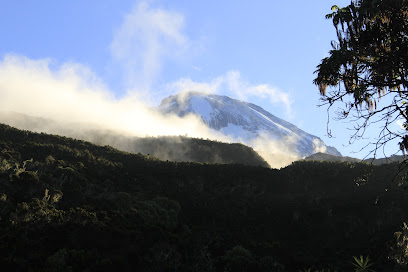
Rafiki Backpackers & Guesthouse
Experience the vibrant culture and breathtaking landscapes of Moshi from Rafiki Backpackers & Guesthouse, your perfect travel base in Tanzania.

Unmissable attractions to see
Mount Kilimanjaro National Park
Experience breathtaking views and rich cultural heritage at Gilman's Point on Mount Kilimanjaro, Tanzania's iconic peak.
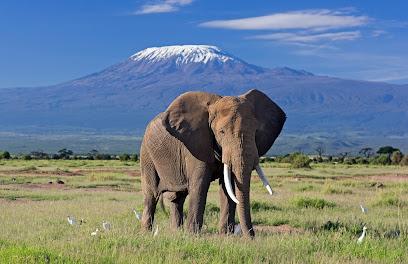
Kikuletwa Springs (Maji Moto)
Experience the tranquil beauty of Kikuletwa Springs, a stunning natural swimming basin in Tanzania, perfect for relaxation and adventure.
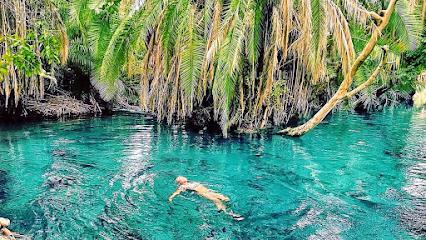
Generous African Safari Tanzania tour operators/Trek-climb Kilimanjaro/|4,6 days Serengeti migration | Zanzibar Beaches tours
Explore Tanzania's breathtaking landscapes, wildlife, and culture with Generous African Safari's unforgettable tours and adventures.
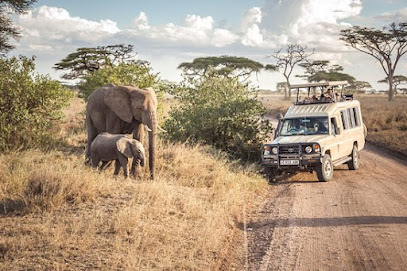
Machame Gate - Mount Kilimanjaro
Explore Machame Gate, the ultimate starting point for your Kilimanjaro adventure, blending breathtaking scenery with unforgettable trekking experiences.
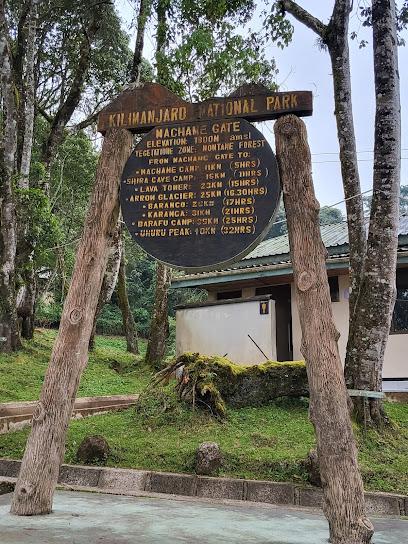
Uhuru Peak
Experience the breathtaking ascent to Uhuru Peak, Africa's highest point on Mount Kilimanjaro, and create memories that will last a lifetime.
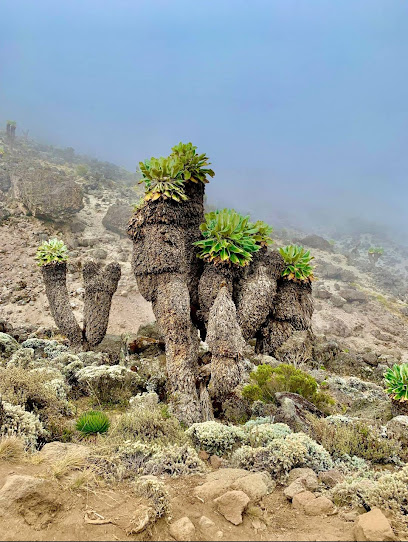
Marangu Falls Kinukamori
Explore the breathtaking Marangu Falls Kinukamori in Tanzania, a stunning natural attraction perfect for nature lovers and adventure seekers alike.
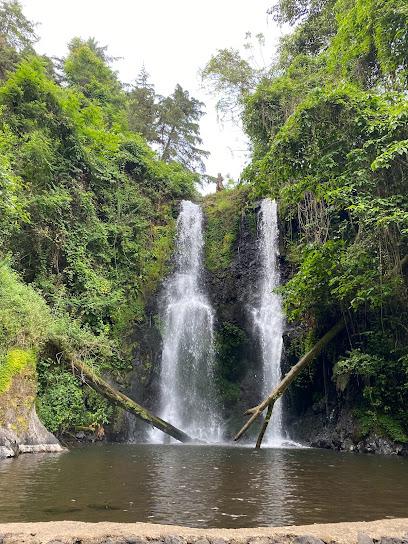
Lake Chala
Discover the serene beauty of Lake Chala, a hidden gem on the border of Tanzania and Kenya, offering breathtaking views and vibrant ecosystems.
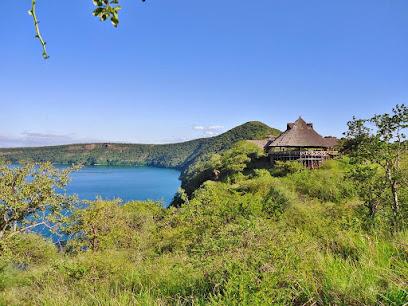
Kilasiya Water Falls
Experience the breathtaking beauty of Kilasiya Water Falls, a must-visit natural wonder in Tanzania perfect for adventurers and nature lovers.
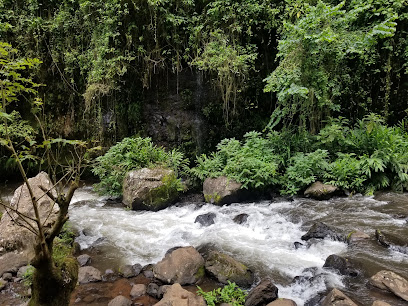
Stella Point
Discover Stella Point: A breathtaking landmark on Mount Kilimanjaro, offering stunning views and unforgettable hiking experiences in Tanzania's majestic wilderness.
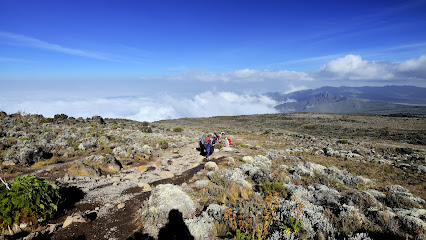
Chemka Hot Springs Campsite
Experience the tranquility of Chemka Hot Springs Campsite, a natural oasis in Rundugai, Tanzania, perfect for relaxation and rejuvenation.
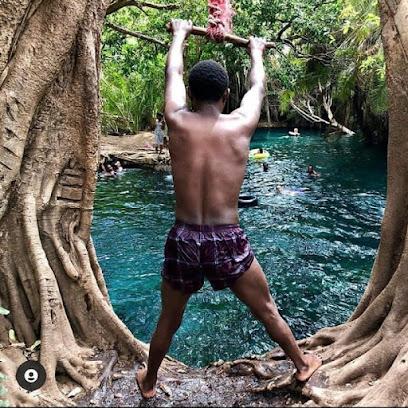
Lake Chala Safari Lodge and Campsite
Discover the serene beauty of Lake Chala Safari Lodge, where adventure meets tranquility in Tanzania's breathtaking landscapes.
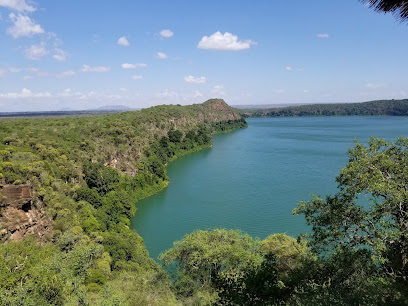
Ndoro waterfalls
Experience the breathtaking beauty and cultural richness of Ndoro Waterfalls, a must-visit destination in Marangu, Tanzania's scenic paradise.
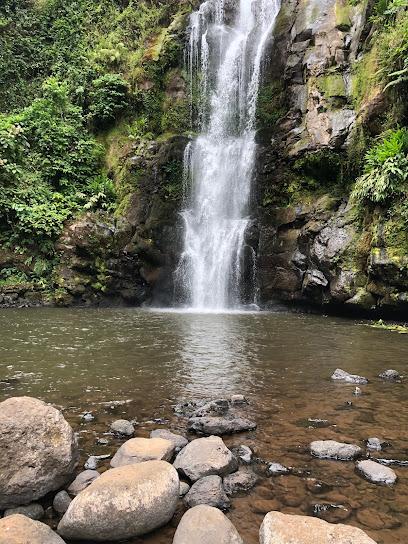
Chagga Museum
Discover the vibrant culture of the Chagga people at Chagga Museum in Marangu, Tanzania, where history and tradition come alive in every exhibit.
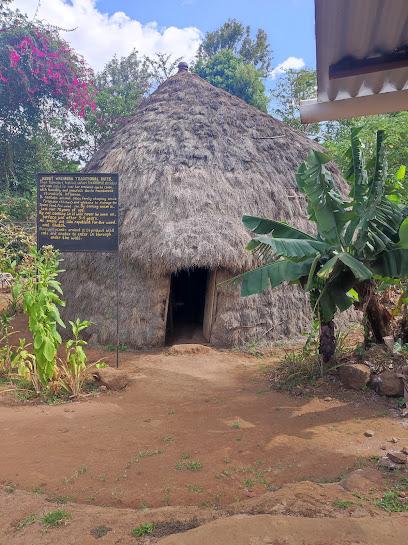
Materuni waterfalls and Coffee tour
Experience the breathtaking beauty of Materuni Waterfalls and immerse yourself in the rich coffee culture of Tanzania, all in one unforgettable tour.

Rau Eco & Cultural Tourism Enterprise
Experience the vibrant culture and stunning landscapes of Moshi at Rau Eco & Cultural Tourism Enterprise, a hub for sustainable tourism and local traditions.
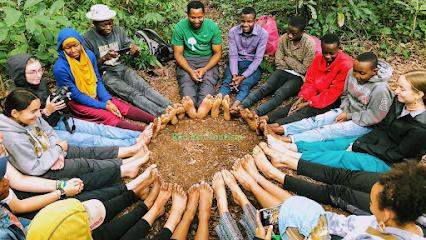
Essential places to dine
Coffee Union Cafe
Discover Coffee Union Cafe in Lindi Street - where exceptional coffee meets delightful Tanzanian breakfast fare.
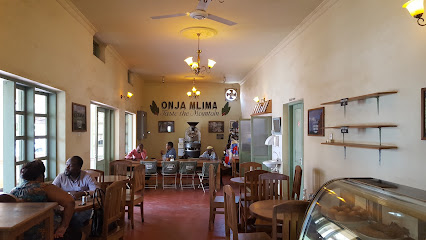
Hugo's Garden Bar & Restaurant
Discover culinary delights at Hugo's Garden Bar & Restaurant in Moshi, where lush gardens meet delicious local cuisine.
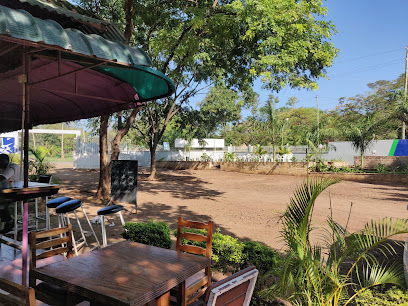
Indoitaliano Restaurant (Delivery available)
Experience authentic Italian cuisine infused with local flavors at Indoitaliano Restaurant in Lindi Street.
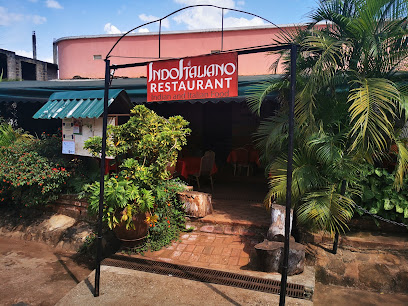
Kili Home Garden Bar and Restaurant
Experience the charm of Kili Home Garden Bar and Restaurant in Moshi - where local flavors meet a serene garden setting.
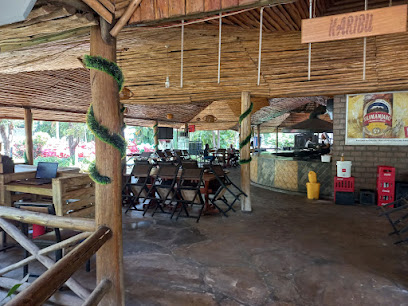
Moshi Pazuri Bar & Restaurant
Discover the vibrant flavors of Tanzania at Moshi Pazuri Bar & Restaurant – where local meets global in every bite.
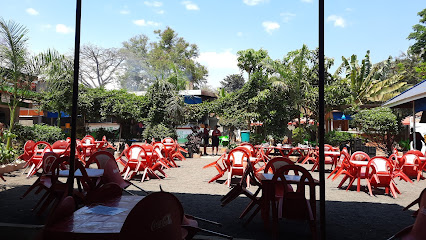
Pub Alberto
Discover the vibrant social scene at Pub Alberto - your go-to pub and fast food restaurant in Moshi offering local flavors at affordable prices.
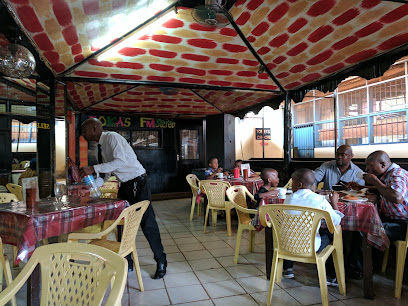
TPC Club Restaurant
Experience culinary excellence at TPC Club Restaurant in Moshi, where local flavors meet global cuisine in a serene setting.
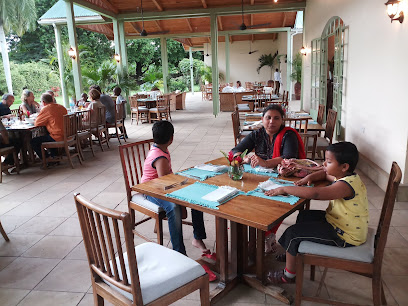
Kuonana Africa Restaurant
Savor authentic African flavors at Kuonana Africa Restaurant in Moshi, Tanzania - where every meal is a celebration of culture.
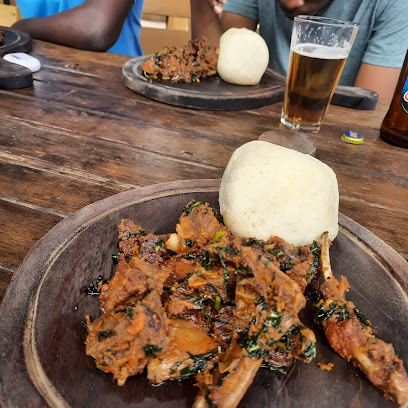
Kili Kahawa Lounge
Discover Kili Kahawa Lounge in Moshi - where exquisite dining meets vibrant culture amidst breathtaking views.
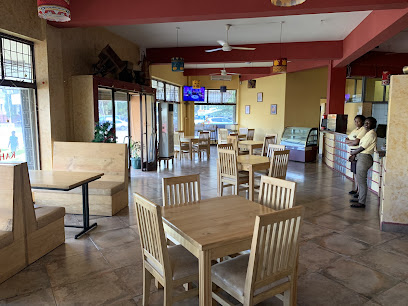
Green Bamboo BBQ
Experience the essence of Tanzanian cuisine at Green Bamboo BBQ—where delicious food meets warm hospitality.
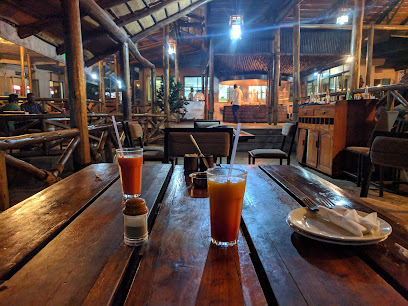
Milan’s Restaurant (Indian Vegetarian cuisine)
Experience authentic Indian vegetarian cuisine at Milan's Restaurant in Moshi - where every dish tells a story.
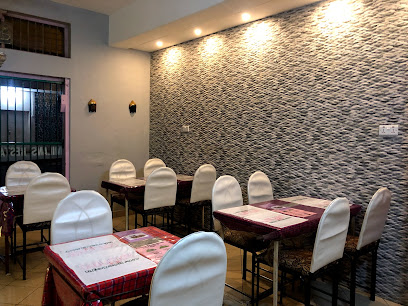
Jay's Kitchen
Discover the vibrant flavors of Korea at Jay's Kitchen in Moshi - an unforgettable culinary experience awaits!
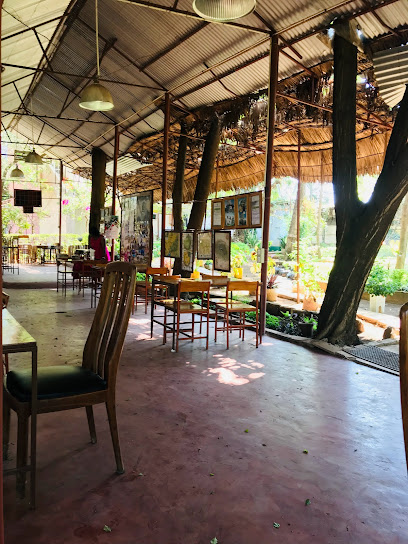
Mr. Price Village
Experience the vibrant flavors of Tanzania at Mr. Price Village - where culinary excellence meets cultural charm in Moshi.
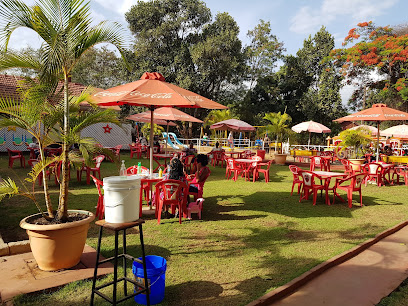
Blossoms Cafe & Wine Bar
Experience the vibrant culinary scene at Blossoms Cafe & Wine Bar in Moshi – where local flavors meet global tastes in an inviting atmosphere.
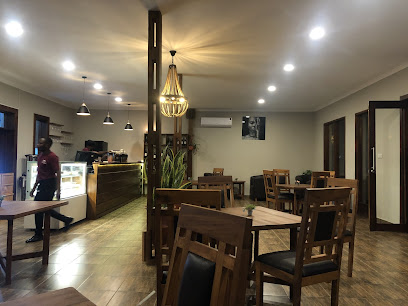
Chrisburger Restaurant
Experience delicious burgers and authentic Tanzanian dishes at Chrisburger Restaurant on Kibo Rd - a culinary haven for every traveler.
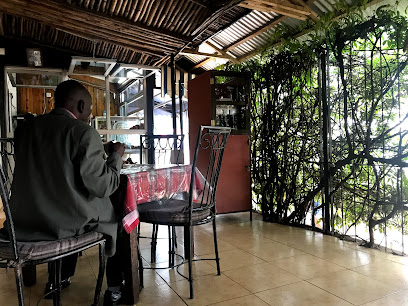
Markets, malls and hidden boutiques
Kilimanjaro Star Supermaket
Explore local flavors and essentials at Kilimanjaro Star Supermarket in Moshi, the perfect stop for tourists seeking authentic Tanzanian experiences.
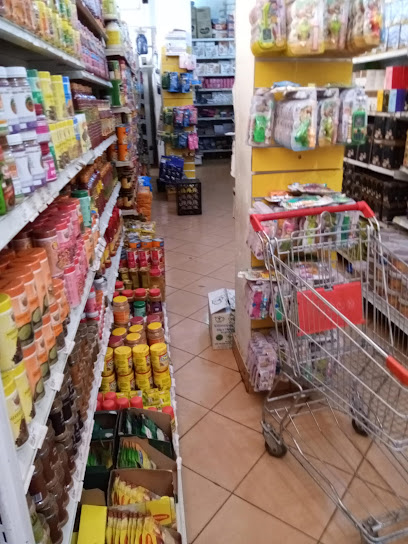
Rafiki Supermarket NSSF Complex Moshi
Explore the vibrant flavors and local products at Rafiki Supermarket in Moshi, your essential stop for groceries and unique Tanzanian treats.
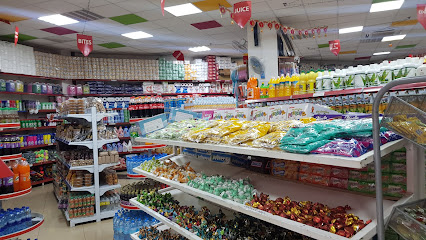
Blue Zebra Art | Tanzanite | Gift Shop
Explore Blue Zebra Art in Tanzania for unique jewelry, tanzanite treasures, and authentic souvenirs that celebrate local craftsmanship.
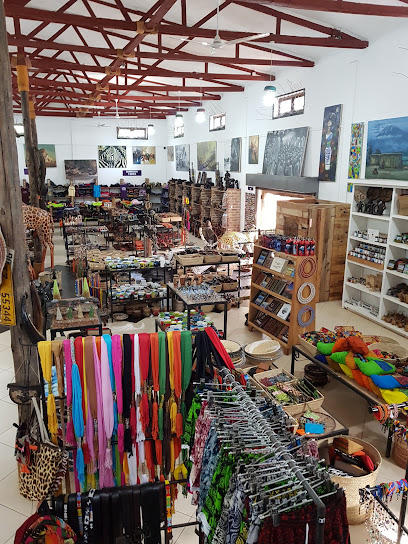
Woodland Shoppers
Experience the local flavors and vibrant culture at Woodland Shoppers in Shanty Town – a must-visit grocery store for every tourist!
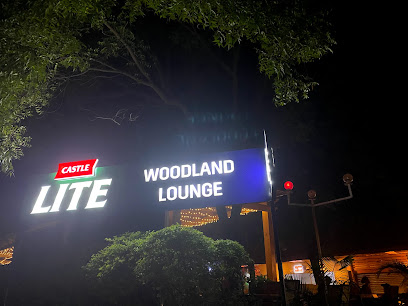
Shopping centre
Discover Moshi's vibrant supermarket, a cultural hub with local delicacies, handmade crafts, and an inviting atmosphere for all tourists.
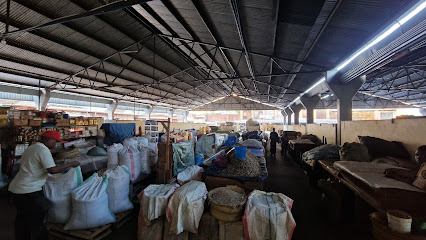
Mama Africa Gift Shop
Explore Mama Africa Gift Shop for unique local art, antiques, and souvenirs that celebrate Tanzania's rich culture and support local artisans.
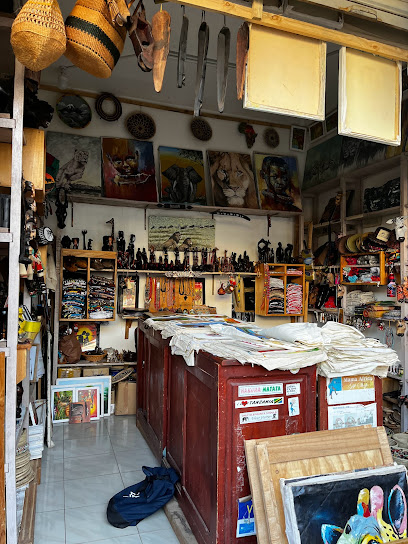
Rafiki Mini Supermarket
Discover local flavors and everyday essentials at Rafiki Mini Supermarket, a vibrant grocery store in Tanzania that offers a taste of local life.
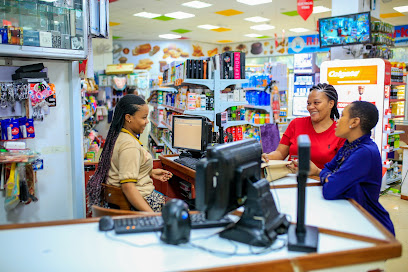
Chui Traders LTD
Explore the vibrant culture of Tanzania at Chui Traders LTD, where unique gifts and local craftsmanship come together in Moshi's heart.
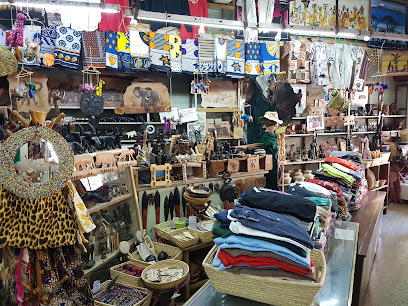
iCurio
Discover unique clothing and accessories that embody the culture of Tanzania at iCurio in Moshi, a vibrant shopping destination for every traveler.
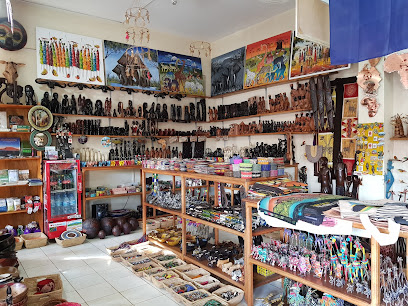
MOSHI TANZANIA
Discover Moshi, Tanzania: A Gateway to Mount Kilimanjaro with Rich Culture, Delicious Cuisine, and Breathtaking Landscapes.
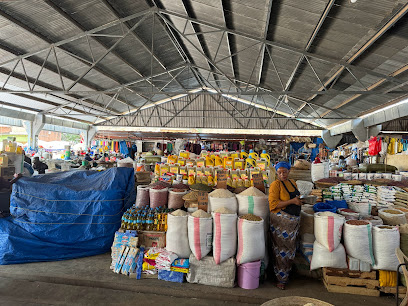
Moshi Bookshop
Discover the charm of Moshi Bookshop, a literary oasis in Tanzania, offering a diverse collection of books and a cozy atmosphere for all book lovers.
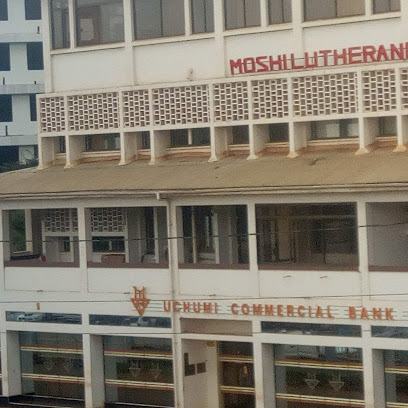
Kilimanjaro Adventure Store
Discover the best outdoor gear and expert advice at Kilimanjaro Adventure Store, your essential stop for adventure in Tanzania's breathtaking landscapes.
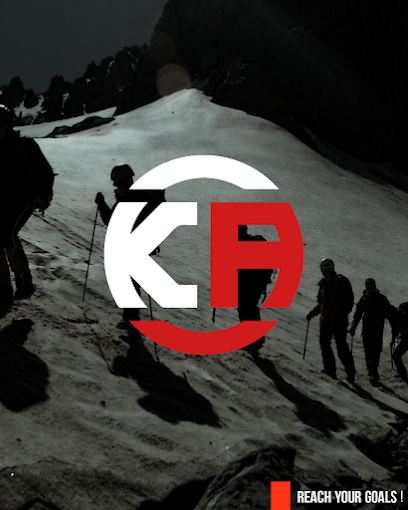
Moshi Mamas Craft Cooperative
Explore the heart of Tanzanian craftsmanship at Moshi Mamas Craft Cooperative, where local artisans create unique gifts and support their community.
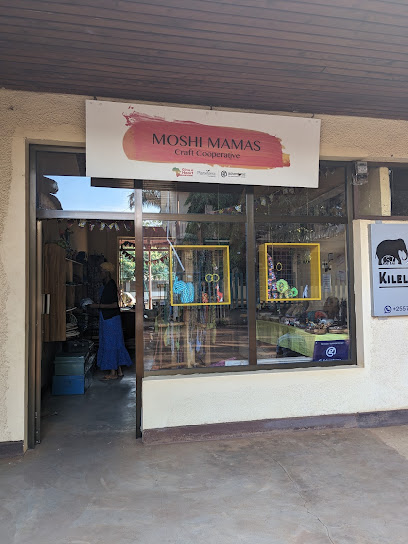
TANZANITE GALLERY
Explore the authentic elegance of Tanzanite Gallery in Moshi, showcasing the captivating beauty of Tanzanian tanzanite jewelry and craftsmanship.
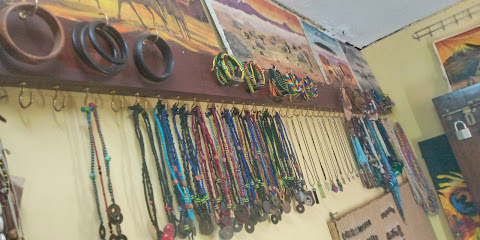
ILON shopping Centre
Discover the vibrant shopping landscape at ILON Shopping Centre, where local charm meets modern retail in Lindi Street.
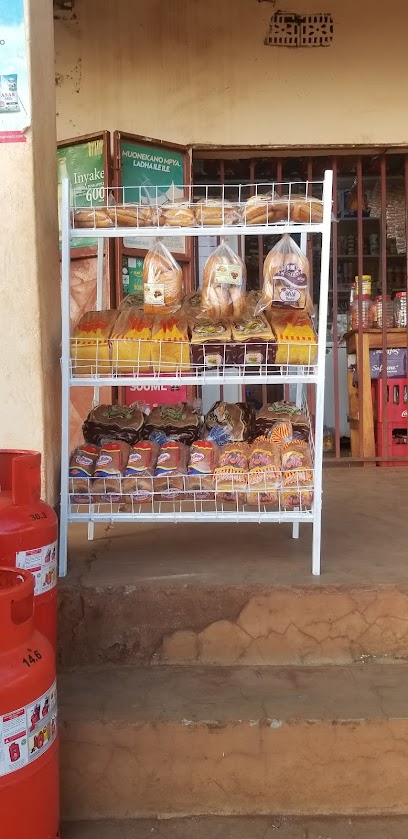
Essential bars & hidden hideouts
Amuzz Bar and Grill
Discover the lively ambiance and delicious cuisine at Amuzz Bar and Grill in Shanty Town, where every night is a celebration of local flavors.
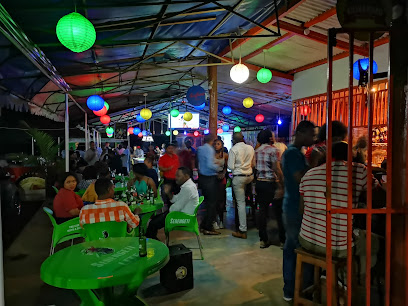
Hugo's Hotel
Experience the vibrant nightlife at Hugo's Hotel, a lively bar in Majengo, Tanzania, offering a perfect blend of local culture and modern comfort.
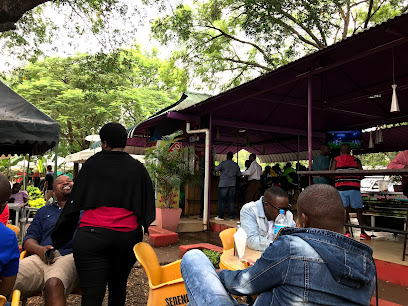
Maembe Garden Restaurant
Discover the flavors of Tanzania in a tranquil garden setting at Maembe Garden Restaurant, Arusha's hidden culinary gem.
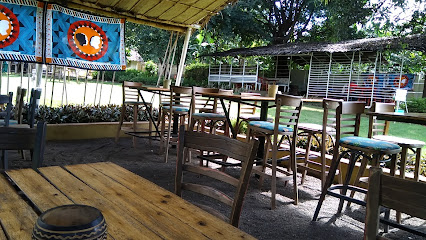
Moshi Pazuri Bar & Restaurant
Experience the lively charm of Moshi Pazuri Bar & Restaurant, where delicious cuisine meets stunning views and a vibrant atmosphere.
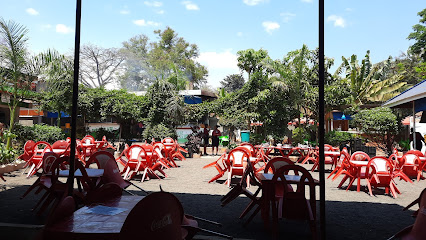
Pub Alberto
Discover the lively spirit of Tanzania at Pub Alberto, where delicious fast food meets a vibrant atmosphere perfect for socializing.
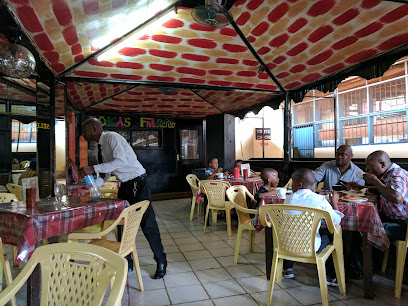
Blossoms Cafe & Wine Bar
Experience delightful dining at Blossoms Cafe & Wine Bar in Moshi, blending local flavors and international cuisine in a vibrant setting.
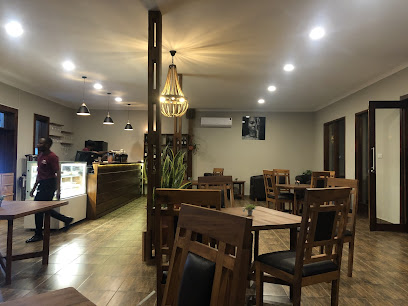
Kaka's Bar and Grill
Experience the vibrant flavors of Tanzania at Kaka's Bar and Grill in Moshi, a perfect dining destination for travelers seeking local cuisine.
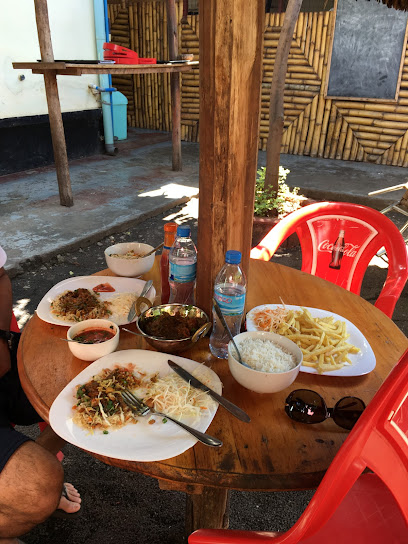
Rau Pub
Discover the vibrant Rau Pub in Shanty Town, where affordable drinks meet a lively atmosphere for an unforgettable night out.
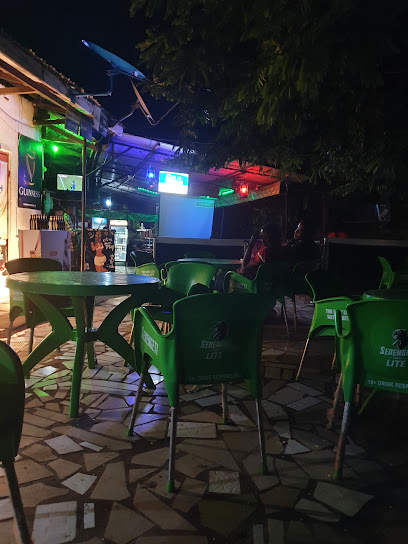
Mkulima Bar
Experience the vibrant atmosphere and delicious grilled dishes at Mkulima Bar, a must-visit grill and bar in Moshi, Tanzania.
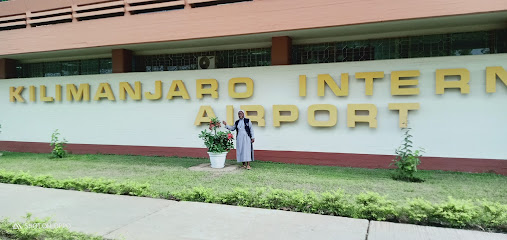
ORIENTAL BAR
Discover the vibrant culinary scene at Oriental Bar in Moshi, where delicious grilled dishes meet a lively atmosphere for an unforgettable dining experience.
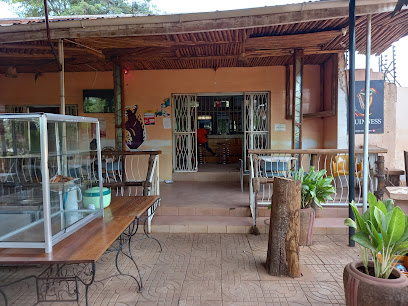
Vegas Bar
Experience the lively nightlife of Shanty Town at Vegas Bar, where affordable drinks and great company await.
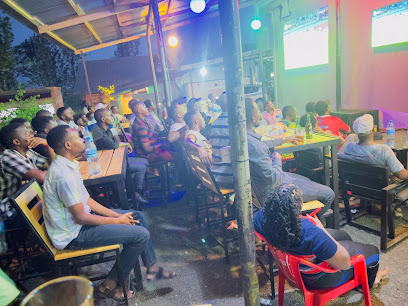
Q-Wine Bar
Experience the vibrant nightlife and local flavors at Q-Wine Bar, a must-visit destination for tourists in Tanzania.
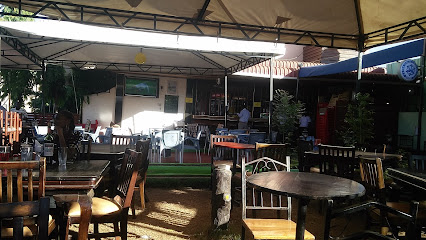
Paji's Bar and Restaurant
Discover the vibrant flavors of Tanzania at Paji's Bar and Restaurant on Lindi Street, where culture and cuisine come together.
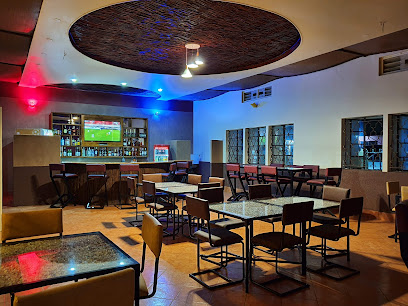
The Summit
Experience breathtaking views of Kilimanjaro while enjoying delicious local and international cuisine at The Summit rooftop bar and restaurant.
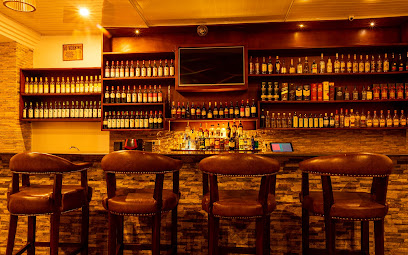
Local Phrases
-
- HelloJambo
[jahm-boh] - GoodbyeKwaheri
[kwah-heh-ree] - YesNdio
[nn-dee-oh] - NoHapana
[hah-pah-nah] - Please/You're welcomeTafadhali
[tah-fah-dhah-lee] - Thank youAsante
[ah-sahn-teh] - Excuse me/SorrySamahani
[sah-mah-hah-nee] - How are you?Habari gani?
[hah-bah-ree gah-nee] - Fine. And you?Nzuri. Na wewe?
[n-zoo-ree. nah weh-weh] - Do you speak English?Unazungumza Kiingereza?
[oo-nah-zoo-ngoom-zah kee-een-geh-reh-zah] - I don't understandSielewi
[see-eh-leh-wee]
- HelloJambo
-
- I'd like to see the menu, pleaseNingependa kuona menyu, tafadhali
[nee-ngeh-pehn-dah kwoh-nah meh-nyoo, tah-fah-dhah-lee] - I don't eat meatSili nyama
[see-lee nyah-mah] - Cheers!Mambo!
[mahm-boh] - I would like to pay, pleaseNingependa kulipa, tafadhali
[nee-ngeh-pehn-dah koo-lee-pah, tah-fah-dhah-lee]
- I'd like to see the menu, pleaseNingependa kuona menyu, tafadhali
-
- Help!Msaada!
[msah-ah-dah] - Go away!Nenda zako!
[nen-dah zah-koh] - Call the Police!Piga polisi!
[pee-gah poh-lee-see] - Call a doctor!Piga daktari!
[pee-gah dahk-tah-ree] - I'm lostNimepotea
[nee-meh-poh-teh-ah] - I'm illNinaumwa
[nee-nah-oom-wah]
- Help!Msaada!
-
- I'd like to buy...Ningependa kununua...
[nee-ngeh-pehn-dah koo-noo-noo-ah] - I'm just lookingNatazama tu
[nah-tah-zah-mah too] - How much is it?Ni bei gani?
[nee beh-ee gah-nee] - That's too expensiveHilo ni ghali sana
[hee-loh nee gah-lee sah-nah] - Can you lower the price?Je, unaweza kushusha bei?
[jay, oo-nah-weh-zah koo-shoo-shah beh-ee]
- I'd like to buy...Ningependa kununua...
-
- What time is it?Ni saa ngapi?
[nee sah-ah ngah-pee] - It's one o'clockNi saa moja
[nee sah-ah moh-jah] - Half past (10)Saa tano na nusu
[sah tah-noh nah noo-soo] - MorningAsubuhi
[ah-soo-boo-hee] - AfternoonMchana
[m-chah-nah] - EveningJioni
[joh-ee-nee] - YesterdayJana
[jah-nah] - TodayLeo
[leh-oh] - TomorrowKesho
[keh-shoh] - 1Moja
[moh-jah] - 2Mbili
[mm-bee-lee] - 3Tatu
[tah-too] - 4Nne
[nn-neh] - 5Tano
[tah-noh] - 6Sita
[see-tah] - 7Saba
[sah-bah] - 8Nane
[nah-neh] - 9Tisa
[tee-sah] - 10Kumi
[koo-mee]
- What time is it?Ni saa ngapi?
-
- Where's a/the...?Iko wapi...?
[ee-koh wah-pee] - What's the address?Anwani ni ipi?
[ahn-wah-nee nee ee-pee] - Can you show me (on the map)?Unaweza kunionyesha (kwenye ramani)?
[oo-nah-weh-zah koo-nee-oh-nyeh-shah (kweh-neh rah-mah-nee)] - When's the next (bus)?Basi linakuja saa ngapi?
[bah-see lee-nah-koo-jah sah-ah ngah-pee] - A ticket (to ....)Tiketi (kwenda ....)
[tee-keh-tee (kwehn-dah)]
- Where's a/the...?Iko wapi...?
History of Moshi
-
The area now known as Moshi has been inhabited for centuries by the Chaga people, one of the Bantu-speaking ethnic groups in Tanzania. They established small, self-sufficient communities on the fertile slopes of Mount Kilimanjaro. The Chaga developed sophisticated agricultural techniques, including the use of irrigation channels called 'mifongo' to cultivate bananas, coffee, and other crops.
-
In the late 19th century, Moshi came under German colonial rule as part of German East Africa. The Germans recognized the region's agricultural potential and established large coffee plantations, which became a cornerstone of the local economy. They also built infrastructure, including roads and the Usambara Railway, which connected Moshi to the port city of Tanga.
-
Following World War I, control of Moshi and the rest of German East Africa was transferred to the British under the League of Nations mandate. The British continued to promote coffee cultivation and expanded educational and medical facilities. Moshi became an important administrative and commercial center in the northern part of the territory. Tanzania gained independence in 1961, and Moshi played a key role as a hub for the new nation's development.
-
Moshi is known for its rich cultural heritage, particularly its Chaga traditions. The Chaga are famous for their intricate wood carvings, vibrant music, and dances. The city hosts several cultural festivals throughout the year, including the Kilimanjaro Marathon, which attracts participants from around the world. Additionally, the local markets offer a glimpse into daily life, with vendors selling everything from fresh produce to handcrafted goods.
-
Today, Moshi is a bustling town that serves as the gateway to Mount Kilimanjaro, Africa's highest peak. It is a popular destination for trekkers and adventure seekers. The town has seen significant development in recent years, with new hotels, restaurants, and tour companies catering to the growing number of visitors. Despite this growth, Moshi has managed to retain its unique character and charm, blending modernity with tradition.
-
Moshi is home to several notable educational and health institutions. The Kilimanjaro Christian Medical Centre (KCMC) is a major referral hospital that serves a large portion of northern Tanzania. The town also hosts the Kilimanjaro School of Pharmacy and the Nelson Mandela African Institute of Science and Technology, which are important centers for higher education and research in the region.
Moshi Essentials
-
Moshi is located in northeastern Tanzania, near the base of Mount Kilimanjaro. The closest international airport is Kilimanjaro International Airport (JRO), which is about 40 kilometers from Moshi town. From the airport, you can take a taxi, shuttle bus, or arrange for a private transfer to Moshi. The drive typically takes around 45 minutes to an hour. Alternatively, you can fly into Julius Nyerere International Airport (DAR) in Dar es Salaam or Jomo Kenyatta International Airport (NBO) in Nairobi, Kenya, and then take a domestic flight or bus to Moshi.
-
Moshi is a small town, and many places of interest are within walking distance. Public transportation options include dala-dalas (shared minibuses) and bodabodas (motorcycle taxis). For more comfort and convenience, you can hire a taxi or rent a car. Bicycle rentals are also available and provide a great way to explore the town and surrounding areas. Always agree on the fare before starting a journey, especially with taxis and bodabodas.
-
The official currency in Tanzania is the Tanzanian Shilling (TZS). Credit cards are accepted in some hotels, restaurants, and larger stores, but it’s advisable to carry cash, especially for smaller purchases and in rural areas. ATMs are widely available in Moshi, but make sure to notify your bank of your travel plans to avoid any issues with card usage. It’s also a good idea to have some US dollars on hand, as they are widely accepted and can be exchanged easily.
-
Moshi is generally a safe town for tourists, but it’s important to take standard precautions. Avoid walking alone at night in unfamiliar areas and be cautious with your belongings in crowded places. Areas like Soweto and Majengo have higher crime rates, so it’s best to avoid these neighborhoods, especially after dark. Use reputable taxi services and stay in well-reviewed accommodations.
-
In case of emergency, dial 112 for police assistance and 115 for medical emergencies. Moshi has several medical facilities, including Kilimanjaro Christian Medical Centre (KCMC) and Mawenzi Regional Hospital. It’s highly recommended to have travel insurance that covers medical emergencies. Pharmacies are available in town for minor health issues. Always carry a copy of your passport and visa, and keep the contact information for your country's embassy or consulate handy.
-
Fashion: Do dress modestly, especially in rural areas and religious sites. Avoid wearing revealing clothing. Religion: Do respect local customs and traditions. Always remove your shoes when entering homes and some religious sites. Public Transport: Do be respectful and courteous to fellow passengers. Don’t eat or drink on public transport. Greetings: Do greet people with a handshake. A common greeting in Swahili is 'Jambo' or 'Habari.' Eating & Drinking: Do try local foods like ugali and nyama choma. Don’t refuse hospitality, as it is considered impolite.
-
To experience Moshi like a local, visit the local markets such as the Central Market and the Kiboriloni Market for fresh produce and handmade crafts. Engage with locals and learn a few Swahili phrases to enhance your interactions. Don’t miss the opportunity to visit a coffee plantation and learn about the coffee-making process. For a unique experience, take a day trip to the nearby Marangu Waterfalls or the Chagga Caves. Enjoy the vibrant nightlife at local bars and restaurants where you can listen to live music and dance.
Trending Landmark in Moshi
-
Mbuyuni Market
-
AFRICA NATURAL TOURS L.T.D
-
Kilimanjaro Wonders Hotel
-
Memorial Market
-
Kili Home Garden Bar and Restaurant
-
Maembe Garden Restaurant
-
Lutheran Uhuru Hostel
-
Parkview Inn
-
Kuonana Africa Restaurant
-
KILIMANJARO WHITE HOUSE HOTEL - Best 4-Star hotel with Mount Kilimanjaro view| Luxury| Budget hotels in Moshi Tanzania
-
Materuni Waterfall
-
Alpine Chat Adventure - Tanzania Safari & Mount Kilimanjaro
-
WINNERS EXPEDITIONS- Best Tour Operator in Tanzania| Kilimanjaro Climbing Company in Arusha & Moshi| Serengeti Migration
-
JAYNEVY TOURS CO L.T.D Best Tanzania Tours & Safari Company in Serengeti|Kilimanjaro Climbing Operators.
-
Rafiki Backpackers & Guesthouse
Nearby Cities to Moshi
-
Things To Do in Arusha
-
Things To Do in Nairobi
-
Things To Do in Mombasa
-
Things To Do in Diani Beach
-
Things To Do in Tanga
-
Things To Do in Malindi
-
Things To Do in Naivasha
-
Things To Do in Singida
-
Things To Do in Dodoma
-
Things To Do in Nakuru
-
Things To Do in Stone Town
-
Things To Do in Zanzibar City
-
Things To Do in Morogoro
-
Things To Do in Lamu
-
Things To Do in Dar es Salaam









